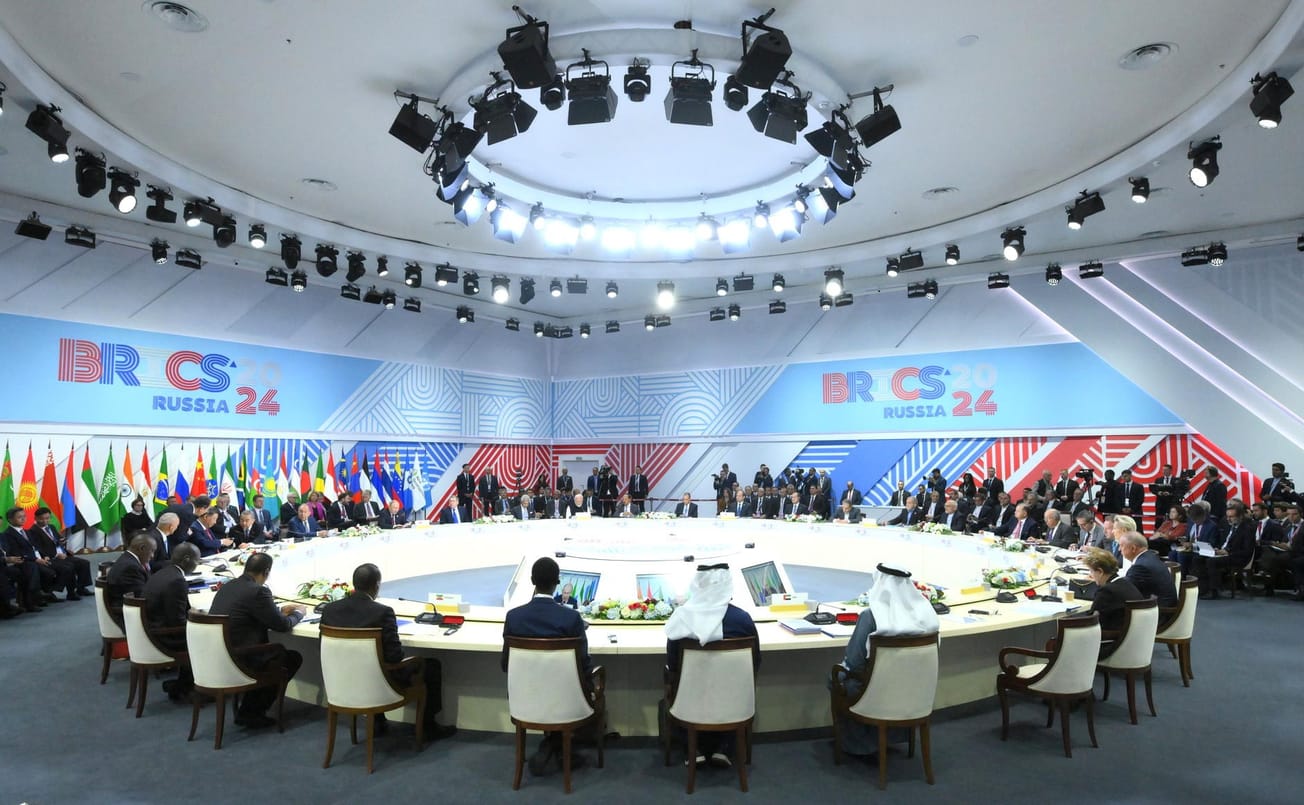While the U.S. was demanding “action” against the Ansarallah Houthi movement in Yemen for its ship attacks on the Red Sea, and Iran for supposedly backing those attacks, during a UN Security Council meeting yesterday, Russia and China were tying those attacks to Israel’s military campaign in Gaza. They both argued that the solution to the Red Sea security crisis lies in Gaza.
Russian UN envoy Vassily Nebenzia, like the U.S. and other members of the council, denounced the Houthi ship attacks and called for the release of the Galaxy Leader and its crew, the ship that the Houthis hijacked and took to Hodeida in November. However, Nebenzia also pointed out that the Houthi ship attacks are not occurring in a vacuum. “I think none of our colleagues is going to deny that the developments in the Red Sea are a direct projection of the violence in Gaza, where Israel’s brutal operation has continued for three months now,” he said. “It is no secret that there is strong disappointment in the Middle East region over the fact that the United States (who has been covering up for Israel’s actions), holds the other UNSC members hostage and prevents adoption of a resolution demanding an immediate ceasefire,” he added, referring to U.S. vetoes of ceasefire resolutions. “This causes anger in the Arab world, which sometimes takes dangerous forms such as the actions of Ansar Allah in the Red Sea. It is getting increasingly difficult for governments in the Middle East to control the sentiment among their populations, and it becomes nearly impossible when a non-state actor is involved.”
Nebenzia said that Russia sees two possible scenarios evolving out of the current situation: either resolving the longstanding conflicts in Gaza and Yemen or “put[ting] out the fire” by pouring gasoline on it. That second scenario, Nebenzia warned, risks derailing the entire settlement of the Yemen-Saudi war that began in 2015. “What’s more, this will create very realistic prerequisites for initiating a new major regional conflict around at least the Arabian Peninsula.”




